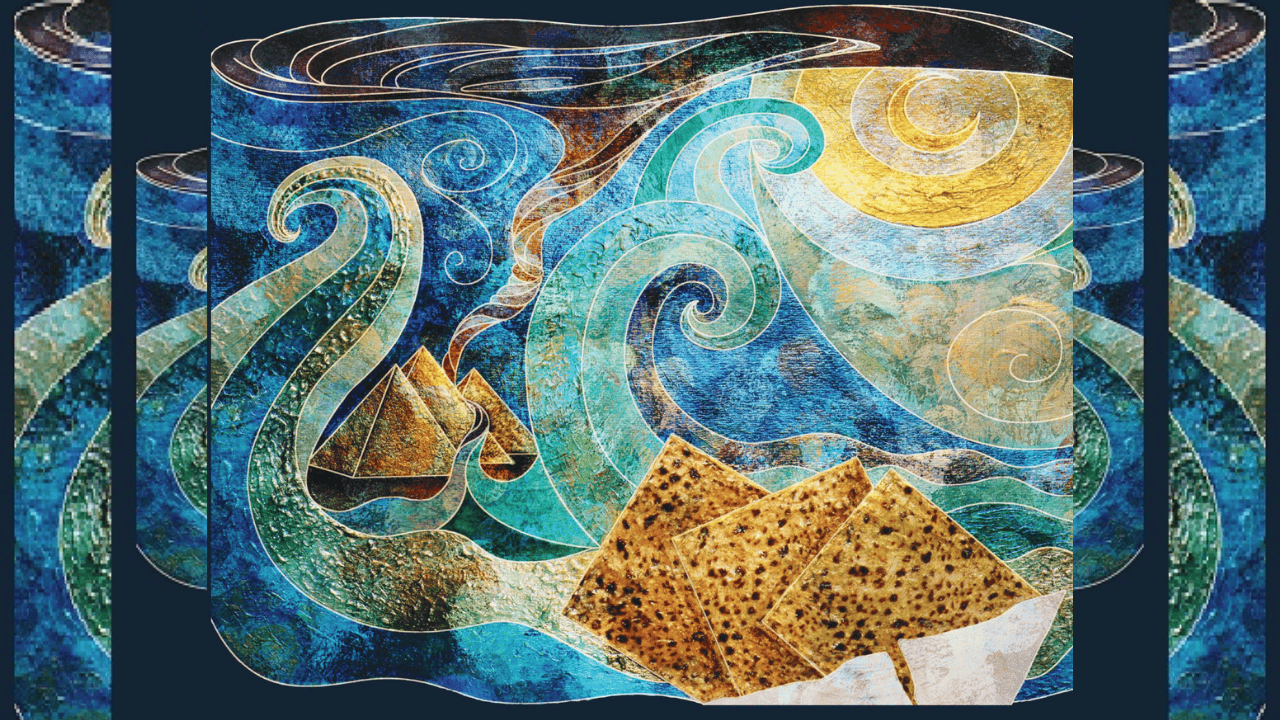In preparing the Jewish people to receive the Torah at Mount Sinai, God instructed Moses to relay the following message:
You have seen what I did to Egypt, and that I have borne you on the wings of eagles and brought you to Me. And now, if you hearken well to Me and observe My covenant, you shall be to Me the most beloved treasure of all peoples, for Mine is the entire world. You shall be to Me a kingdom of ministers and a holy nation. These are the words that you shall speak to the Children of Israel. (Exodus 19:4-6)
The Hebrew word the Torah uses for “treasure,” segulah, is derived from the same root as the Hebrew word for “triangle.” (Modern Hebrew, focusing on another of the triangle’s attributes, has adopted the term “meshulash,” stemming from the Hebrew word “shalosh,” which means three.) What is the connection between the Jewish people’s designation as God’s treasure and the triangle? According to Kabbalah, the two are connected by the Hebrew vowel segol, which gains it name from its triangular array of three dots.
According to Kabbalah, the segol’s upper right-hand dot represents Chesed; the upper left-hand one represents Gevurah; and the bottom dot represents the unifying property of Tiferet. Thus, this vowel symbolizes the ultimate harmony and balance in creation. Each of these sefirot is associated with one of the three patriarchs: Abraham, Isaac, and Jacob, respectively. The archetypal souls of the Jewish people’s founding fathers are the source of the nation’s later division into three: Kohanim (Priests), Levi’im (Levites), and Yisraeli’im (Israelites).
Incorporating what we have just discussed, Israel’s designation as God’s “special treasure” can now be understood on a much deeper level, especially given the fact that God calls Israel an “am segulah” (a treasured people) three times in Deuteronomy (7:6; 14:2; 26:18). Israel possesses the balance, harmony, and strength of the number three.
The recitation of the following verse by the congregation during the Rosh Hashanah prayers following the blowing of the shofar deepens our understanding even further: “Praiseworthy is the people who knows the shofar blast; God—in the light of Your countenance they will walk” (Psalms 89:16). This verse implies not just a passive hearing of the shofar but rather a deeper essential knowing of the shofar blasts’ inner meaning. Israel’s designation as an “am segulah” alludes to the fact that the Jewish people know the secret of the segol, the secret of the balance and harmony in creation and of their own special mission, to rectify creation and unify humanity.
The Talmud characterizes the Giving of the Torah at Mount Sinai in the following manner: “Blessed is the Merciful One Who gave our Torah, which is divided into three divisions [Torah, Prophets, Writings], to a people divided into three divisions [Kohen, Levi, Yisrael], through a third [child; Moses, born to his mother Yocheved, after Miriam and Aaron], on the third day [of abstinence] during the third month [of the year]” (Shabbat 88a). This Talmudic statement further strengthens the association between God’s treasured Jewish people, the Torah, and the number three.
“A cord braided from three strands will not quickly be broken” (Ecclesiastes 4:12). Applying this verse to the three Patriarchs—Abraham, Isaac, and Jacob—the Rabbis explain why there had to be three Patriarchs and why the Jewish people had to be divided into three: “three strands will not quickly be broken.” Indeed, the Rabbis interpret the verse to prophesy that the Jewish people “will never be broken.” What other nation has been able to withstand thousands of years of persecution and plots of annihilation with greater success than the Jewish people?
On an even deeper level the triad of Israel, Torah, and God are described in the Zohar as being fundamentally linked: “Three bonds are bonded together: Israel to Torah and Torah to God” (3:73a). This statement echoes the sentiment expressed in Ecclesiastes quoted above: “a cord braided from three strands will not quickly be broken.” Just as the Rabbis interpret the verse to mean that Israel “will never be broken,” here too they understand the verse to mean that Israel, Torah, and God are eternally bound together.







